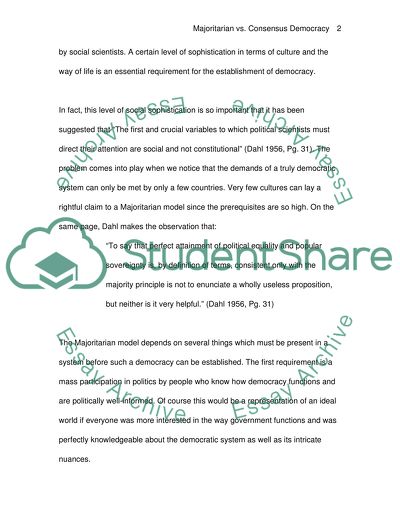Cite this document
(The Concept of Democracy Case Study Example | Topics and Well Written Essays - 1628 words, n.d.)
The Concept of Democracy Case Study Example | Topics and Well Written Essays - 1628 words. Retrieved from https://studentshare.org/politics/1536041-majoritarian-vs-consensus-democracy
The Concept of Democracy Case Study Example | Topics and Well Written Essays - 1628 words. Retrieved from https://studentshare.org/politics/1536041-majoritarian-vs-consensus-democracy
(The Concept of Democracy Case Study Example | Topics and Well Written Essays - 1628 Words)
The Concept of Democracy Case Study Example | Topics and Well Written Essays - 1628 Words. https://studentshare.org/politics/1536041-majoritarian-vs-consensus-democracy.
The Concept of Democracy Case Study Example | Topics and Well Written Essays - 1628 Words. https://studentshare.org/politics/1536041-majoritarian-vs-consensus-democracy.
“The Concept of Democracy Case Study Example | Topics and Well Written Essays - 1628 Words”, n.d. https://studentshare.org/politics/1536041-majoritarian-vs-consensus-democracy.


